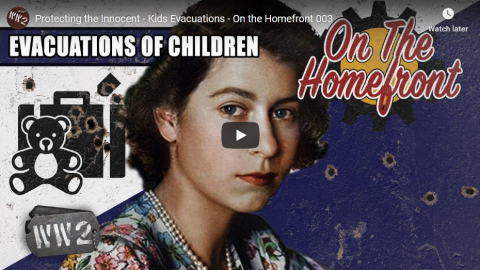I took an informal poll of parents I know. At what age or stage of development can Mom or Dad go ahead and sit down, reasonably assured their little darlings will survive a solo whirl on the jungle gym? Instead of a hard-and-fast answer, what I got was the sense that we hover for numerous and complicated reasons. We fear school buses, babysitters, and sometimes even Grandma and Grandpa, who may not know any better than to let the baby cry a little on her way to sleep. We’re scared adversity will scar our kids or, conversely, that they’ll be bored — a condition that, left untreated, might turn them into school shooters.
But we also fear their independence. We’re up there in the climber because we can’t afford to miss a minute of face time, you see. We believe our physical presence is the linchpin to the children’s emotional well-being and, although we never say so out loud, we want it that way — because it’s central to our well-being. We’re scared the kids will grow up to resent the fact that Mommy works, or — the biggest golem on the list — they just plain won’t like us. And in an age of high divorce rates and transient communities, kids who don’t like us suggest the possibility that we might really end up alone.
Beth Hawkins, “Safe Child Syndrome: Protecting kids to death”, City Pages, Volume 26 – Issue 1267 (posted to the old blog, 2005-04-01).
August 14, 2021
QotD: Modern parenting
December 26, 2020
Repost – The market failure of Christmas
Not to encourage miserliness and general miserability at Christmastime, but here’s a realistic take on the deadweight loss of Christmas gift-giving:
In strict economic terms, the most efficient gift is cold, hard cash, but exchanging equivalent sums of money lacks festive spirit and so people take their chance on the high street. This is where the market fails. Buyers have sub-optimal information about your wants and less incentive than you to maximise utility. They cannot always be sure that you do not already have the gift they have in mind, nor do they know if someone else is planning to give you the same thing. And since the joy is in the giving, they might be more interested in eliciting a fleeting sense of amusement when the present is opened than in providing lasting satisfaction. This is where Billy Bass comes in.
But note the reason for this inefficient spending. Resources are misallocated because one person has to decide what someone else wants without having the knowledge or incentive to spend as carefully as they would if buying for themselves. The market failure of Christmas is therefore an example of what happens when other people spend money on our behalf. The best person to buy things for you is you. Your friends and family might make a decent stab at it. Distant bureaucrats who have never met us — and who are spending other people’s money — perhaps can’t.
So when you open your presents next week and find yourself with another garish tie or an awful bottle of perfume, consider this: If your loved ones don’t know you well enough to make spending choices for you, what chance does the government have?
May 15, 2020
Protecting the Innocent – Kids Evacuations – On the Homefront 003
World War Two
Published 14 May 2020The European powers may be at war but there’s now thing they can agree on: their young must be protected. So, before the first RAF or Luftwaffe bombs were even dropped on cities, countries are drawing up plans to save as many lives of their youth as they possibly can.
Join us on Patreon: https://www.patreon.com/TimeGhostHistory
Or join The TimeGhost Army directly at: https://timeghost.tvFollow WW2 day by day on Instagram @World_war_two_realtime https://www.instagram.com/world_war_t…
Between 2 Wars: https://www.youtube.com/playlist?list…
Source list: http://bit.ly/WW2sourcesHosted by: Anna Deinhard
Written by: Isabel Wilson and Spartacus Olsson
Director: Astrid Deinhard
Producers: Astrid Deinhard and Spartacus Olsson
Executive Producers: Astrid Deinhard, Indy Neidell, Spartacus Olsson, Bodo Rittenauer
Creative Producer: Joram Appel
Post-Production Director: Wieke Kapteijns
Research by: Isabel Wilson
Edited by: Mikołaj Cackowski
Sound design: Marek Kamiński
Map animations: Eastory (https://www.youtube.com/c/eastory)Sources:
USHMM
Bundesarchiv
IWM LN 6194, HU 36871, D 2238, D 10457, D 2592, D 5081, D 24903, IWM D 15530, D 2045, HU 3323, Art.IWM PST 3095, Art.IWM PST 13854, Art.IWM PST 15100, D 9211, D 824, D 257, D 5665, D 2224, D 1939A, F 4422
Portrait of John Anderson, courtesy Yousuf Karsh, Dutch National Archives
from the Noun Project: students by Piotrek Chuchla, mother by Mr. Minuvi, Pregnant by Wojciech Zasina, bag by Nabilauzwa, Gas Mask by Nico Ilk from the Noun Project, Underwear by The Icon Z, baby clothes by Llisole, espadrilles shoes by Edwin PM, socks by Анна Пасечная, Toothbrush by amantaka, Comb by Randall Barriga, towel by Pixelz Studio, handkerchief by Vectors Market, soap by Jae Deasigner, coat by Ilham Juliandi, Food by Atif ArshadSoundtracks from the Epidemic Sound:
Reynard Seidel – “Deflection”
Johannes Bornlof – “The Inspector 4”
Johannes Bornlof – “Deviation In Time”
Farell Wooten – “Blunt Object”
Jo Wandrini – “Puzzle Of Complexity”
Gavin Luke – “Drifting Emotions 3”
Howard Harper-Barnes – “Prescient”
Fabien Tell – “Last Point of Safe Return”
Andreas Jamsheree – “Guilty Shadows 4”Archive by Screenocean/Reuters https://www.screenocean.com.
A TimeGhost chronological documentary produced by OnLion Entertainment GmbH.
From the comments:
World War Two
5 hours ago (edited)
Welcome back to another episode of On the Homefront! Researching this episode about evacuations was a fun one to dive to because in the UK, we learn about about children evacuees during the war but of course what we’re not taught is the mass scale of this operation. For each of the millions of children displaced during the war, they each came away with it with their own story and I hope I’ve captured that here. Looking forward to reading your comments! Be sure to follow us over on instagram at https://www.instagram.com/world_war_two_realtime/ and let us know what other aspects of life on the homefront you’d like to hear about!Cheers,
Izzy
April 7, 2020
Cultural factors in the spread of the Wuhan Coronavirus
Sarah Hoyt explains why any computer model involving actual human beings might as well begin with “Assume a Spherical Cow of Uniform Density in a Frictionless Vacuum“:
What I do know is that — are you ready? — human societies, involving multiple nations or even our own culturally diverse, geographically spread out nation, are not now nor will they ever be a spherical cow of uniform density in friction-less vacuum.
So … why is it that even now that they admit the scary Imperial model is insane, our authorities, from federal on down are treating the US as though it were just that mythical cow, and on top of that exactly the same as the cow in Italy, Spain or France.
[…] but here’s the thing: Italy has a completely different culture. Yes, it also has a sclerotic, understaffed and just impoverished healthcare system. (Yes, every time I post that I have to spam a million comments telling me how well the WHO ranked Italy — which is great, except the WHO ranks a single payer system above everything else, including outcomes — and how Lombardy is the envy of Italy or something, which leads me to say “Sucks to be you.”)
However, that’s just a factor in the debacle. The other factor is culture and no one is taking it into account. Multi-generational families live together (I should throw stones, yes) or in the same house which becomes a sort of compound. (This is common to all Mediterranean cultures. I grew up in such a compound until the age of six.) which means that while Grandma isn’t abandoned to the tender mercies of Haitian health workers, it’s also really hard to isolate her when little Guido gets the never-get-well at school and cheerfully brings it home. Even when they don’t live together, extended families have a level of closeness that freaks out even the closest American families. If you and your relatives live within driving distance of each other and don’t see each other every other day, there’s something wrong.
Every house is a continuous cacophony of visiting relatives and friends. In safer times, we just left the back door unlocked because it was easier than answering the doorbell every five minutes. When I first got married, I had the TV on all day, because otherwise the house was so silent, it freaked me out. (I left Disney channel on all day, because it was less likely to startle me with explosions or evil laughter. This led my inlaws to believe I only understood “English for children” (rolls eyes.) I wasn’t even in the room with it. I just needed that noise, or I freaked out, because of the habit of a lifetime.
The freakiest thing in my exchange student years was that my family never had people drop by, several times a week, just because.
On top of that, of course, a lot of the younger people live in stack-a-prole apartments with shared air, and most people commute by train or bus or something.
Now, in Portugal at least most trains and buses aren’t as full as they were in my youth. You are rarely packed in like sardines. But it’s still public transport, and at rush hour every seat is taken and there are people standing.
As much as I get sick here, I got sick way more often there, and had a few really close calls, starting at about thirteen. Because you live in each other’s pockets.
And I understand that in Italy, as in Portugal, as in, for instance, France, people kiss a lot more. Adult men might not, unless they’re close(ish) relatives, but women and children get kissed by everyone from close kin to total strangers.
All of those create conditions for the virus to explode. In Italy, in France, in Spain. I understand it’s not exploded nearly as much in Portugal, but I also wonder how much of that is Portuguese reluctance to go to the doctor or the hospital. Because “the hospital is where you die.” (Yes, sue me. Some cultural assumptions remain. Which is why my husband is the one who normally drags me to the hospital.) Because, you see, we DO know for at least one of the clusters, the hospital was making it worse. Go to the hospital for any other reason, catch Winnie the Flu.
February 24, 2020
QotD: Not the village, not the family … the individual
Liberals say, “It takes a village” to make a society great and strong.
The conservatives reply, “No, it does not take a village; it takes a family.”
Both sides are wrong. It takes an individual. It takes an individual to accomplish even modest goals. It takes a special kind of individual to accomplish great things. More often than not, individuals accomplish what they do in spite of the family, or in spite of the village.
It takes an individual to think, conceptualize, plan, and create. It takes an individual to rise above mediocrity, fear, and toward new discoveries.
“Families” do not work, study, and make a living. Individuals do. “Villages” do not discover electricity, or cure terrible diseases. Individuals do. Families and villages are not mystical entities. The are comprised of individuals. It is the brightest, and most creative, of those individuals upon whom the family and village depend.
Michael J. Hurd, “It Takes An Individual”, Capitalism Magazine, 2005-08-11.
December 25, 2019
Repost – The market failure of Christmas
Not to encourage miserliness and general miserability at Christmastime, but here’s a realistic take on the deadweight loss of Christmas gift-giving:
In strict economic terms, the most efficient gift is cold, hard cash, but exchanging equivalent sums of money lacks festive spirit and so people take their chance on the high street. This is where the market fails. Buyers have sub-optimal information about your wants and less incentive than you to maximise utility. They cannot always be sure that you do not already have the gift they have in mind, nor do they know if someone else is planning to give you the same thing. And since the joy is in the giving, they might be more interested in eliciting a fleeting sense of amusement when the present is opened than in providing lasting satisfaction. This is where Billy Bass comes in.
But note the reason for this inefficient spending. Resources are misallocated because one person has to decide what someone else wants without having the knowledge or incentive to spend as carefully as they would if buying for themselves. The market failure of Christmas is therefore an example of what happens when other people spend money on our behalf. The best person to buy things for you is you. Your friends and family might make a decent stab at it. Distant bureaucrats who have never met us — and who are spending other people’s money — perhaps can’t.
So when you open your presents next week and find yourself with another garish tie or an awful bottle of perfume, consider this: If your loved ones don’t know you well enough to make spending choices for you, what chance does the government have?
May 3, 2019
The power of the patriarchy
As we are often told, men have distinct advantages in modern society that women are still struggling to achieve for themselves. Daphne Patai doesn’t seem to have got the memo, however:
In contemporary America, women and men still act out ancient roles. From the point of view of the men, the society is a matriarchy: Women have physically less demanding jobs — with the sole exception of childbirth, by now a rare event in the average woman’s life. Women sustain far fewer injuries on the job, are not required to go to war, take better care of their health, and for these reasons and many others enjoy a lifespan significantly longer than that of men.
In this society, men use their physical strength, when necessary, on women’s behalf. Women claim to be equal partners when that suits them and claim to be entitled to special consideration when that suits them. They insist on autonomy in maintaining or aborting pregnancies, but at the same time, they determine the fathers’ duties-and rights, if any. Women claim child support. They can either demand or impede fathers’ continuing involvement with their offspring, as the women see fit. The result is that women have advantages over men in child custody suits, just as they have learned to use charges of child sexual abuse and domestic violence.
Though dozens of studies show that women, by their own account, initiate violence against their domestic partners as often as (if not more often than) men, and cause as much injury when weapons are involved, somehow the social mythologies of this country keep that fact from gaining broad public attention, let alone credence.
But worst of all, in terms of the interactions of daily life, are women’s emotional demands on men. At home, men routinely sit through harangues that demonstrate women’s greater verbal skills and emotional agility. Men, inarticulate, try to figure out what is required of them in a given situation. Not by accident, verbal therapies in this society archetypically began with men listening and women speaking. Even as little boys, males learn to be in awe of girls’ verbal fluency. The feeling of ineptness, of being no match for females at the verbal and emotional level, is the common inheritance of all but a few exceptional males.
The matriarchy here described, structured to protect women’s interests as against men’s (and, ironically, having conned men into defending such a set up) puts a premium on women’s special social and emotional skills. Everywhere, women engage men and one another in personal conversation, offering and receiving disclosures, demanding commiseration, giving advice, spreading censure. Men, trained to keep to their workhorse style, are uncomfortably cornered by women, in the workplace, and at home, demanding that they speak from the heart. When asked “How are you?” women give a detailed and precise accounting. In offices, they spend valuable time discussing personal matters.
March 25, 2019
QotD: Village life
I hate rumor. Perhaps I hate it more because I grew up in a village.
The people who imagine villages are idyllic and every person in it loves the other like a brother or sister, have no knowledge of people — or reality. Sure, in many villages in isolated places, most of the people there are related to some degree. This was not true where I grew up, because the village was already in the process of exploding into a large-city suburb. It wasn’t visible to me as a child, because it was so slow, and newcomers still took years to integrate, but it it had been going on for so long that the appellation of “aunt” given to any grown woman by any child was just courtesy, not truth. Still, had we been all related, people who imagine that makes for harmonious living must have been only children and the children of only children.
No, never mind, I’m being silly. Those people are actually enormous racists and oikophobes. Hating their own home, they imbue places far away, particularly those inhabited by people who tan more than they do, with the qualities of heaven. They also in the process make those people-who-tan (or as I always think when I’m the object of this type of thought, and yes, I am, it’s what enables them to think themselves my intellectual superiors a-priori “Little brown peoples”) less than human. They (we) are not people with our own agency, and all the virtues and vices of mankind, but sort of little pets, perfect, well behaved and needing both the protection of our masters, the pale enlightened, and their pat on the head for how good we are. (Most of the left’s ideas on “defeating colonialism” envision themselves as benevolent colonial masters. In fact, the colonialism of Marxist ideas in Africa is what has made it hell on Earth, far worse than any colonial overseers could do. By turning their best and brightest into Marxist apostles at our “finest universities” they get to send these ideas back to Africa. There was some idea they would flourish there among people unsullied by greed and the wish to succeed individually (yes, it’s that racism again. It is inherent in the left’s contrived “celebration” of black people, Kwanza, which is really a celebration of socialist principles. And no, is in no way African. It was invented in the US. For one there isn’t such a thing as an “African” holiday. The continent is as or more varied than Europe (because transport was near impossible for most of its existence, tribes and villages were very isolated indeed.)) It didn’t. Instead it has made Africa worse than ever before. And this was done by turning its favorite sons, its brightest sparks into poison pills. Colonialist Marxism is appalling and responsible for the deaths of millions. As is Marxism everywhere.)
Sarah Hoyt, “Painted All In Tongues”, According to Hoyt, 2017-03-20.
February 25, 2019
Modern parenting – too many helicopters yield lots of snowflakes
It’s a commonplace assertion that children today have less unscheduled, unsupervised opportunities for play and exploration, and parents have been indoctrinated into the belief that the world has become a much more dangerous place and their kids need 24/7 protection from those myriad dangers. “Helicopter” parenting is a rational response to this indoctrination, but it comes with costs to the growth and maturity of the next generation. More than a decade ago, I posted this graphic showing how each generation has been more protective of their own children than their parents had been for them:
The problem has been getting worse over time, as Rob Creasy and Fiona Corby describe:
Children growing up in the UK are said to be some of the unhappiest in the industrialised world. The UK now has the highest rates of self harm in Europe. And the NSPCC’s ChildLine Annual Review lists it as one of the top reasons why children contact the charity.
Children’s mental health has becomes one of British society’s most pressing issues. A recent report from the Prince’s Trust highlights how increasing numbers of children and young people are unhappy with their lives, sometimes with tragic consequences.
This is a generation of young people that has been labelled as “snowflakes” – unable to handle stress and more prone to taking offence. They are also said to have less psychological resilience than previous generations. And are thought to be too emotionally vulnerable to cope with views that challenge their own.
[…]
Children’s lives are being stifled. No longer are children able to spend time with friends unsupervised, explore their community or hang around in groups without being viewed with suspicion. Very little unsupervised play and activity occurs for children in public spaces or even in homes – and a children’s spare time is often eaten up by homework or organised activity.
This is further impacted by the way children are taught in schools and how pressure to succeed has led to a taming of education. But if children are never challenged, if they don’t ever experience adversity, or face risks then it is not surprising they will lack resilience.
December 20, 2018
Dropkick Murphys – “The Season’s Upon Us” (Video)
Dropkick Murphys
Published on 3 Dec 2012Music video for “The Season’s Upon Us” from the upcoming album SIGNED and SEALED in BLOOD (out Jan 8).
Directed by Garrett Warren.
May 30, 2018
May 22, 2018
A variant factor in Chinese economic statistics
I’ve long been on the record as not trusting Chinese government statistics (some examples here, here here, here, here, here, here, here, here here, here, here, here, here, here, here, and here), but this is a twist I hadn’t previously noticed:
A useful and basic rule of thumb about international economic statistics. Never, but just never, believe nor pay attention to anything about the Chinese economy for the first quarter of the year. No, this isn’t because our inscrutable bretheren dissemble more or less at this time of year, it’s not because their statisticians spend January drunk or hungover (unlike our own), it’s because the Chinese New Year obeys its own little calendar.
The modern Chinese New Year begins on the first new moon between January 21st and February 20th. Earlier calendar systems were more complicated:

Chinese five phases and four seasons calendar, used during the Zhou dynasty (c. 1046 BC-256 BC).
Image by Orienomesh-w, via Wikimedia Commons.
Well, OK, so if this was a western country that really celebrated the New Year (say, Scotland) then everyone would be back at work 48 hours later. However, the Chinese New Year is also the start of the two week holiday. Sorta a mixture between American Thanksgiving (you WILL eat at your mother’s table or a close simulacrum of it) plus a Wakes Week (English industrial towns would shut every single factory so that all could get away to the beach for a week. Well, beach not so much, Skegness maybe). The combination of the two means that near every factory in the country shuts for a couple of weeks as the largest migration in history takes place. All those migrant workers heading back to Mom’s dumplings.
If this all took place at the same time each year then our economic statistics would take account of it just fine with our seasonal adjustments. Just like we do with Christmas. We know very well that hundreds of thousands get hired for temporary jobs packing and delivering just before, get laid off immediately afterwards. We don’t see that reflected in the unemployment numbers because we’re not interested. We want to see trends, not known seasonal variations. So too with output and all that – many European factories do close in that week after Christmas. We don’t measure a drop in GDP then because we know about it therefore ignore it.
So Chinese official economic statistics are even less likely to correspond to reality during the first quarter than at any other time of the year.
March 4, 2018
The dirty secret of a lot of “traditional” family recipes
At Atlas Obscura, Alex Mayyasi spills the beans about a lot of secret family recipes:
When Danny Meyer was gearing up to open his barbecue restaurant, Blue Smoke, there was one recipe he knew he had to have on the menu: his grandmother’s secret potato salad recipe.
“I told the chef, ‘My very favorite potato salad in the world was the one my grandmother made,’” Meyer recalls.
That’s a big statement coming from Meyer, a successful restaurateur who has earned Michelin Stars and founded the fast-casual chain Shake Shack. At the time, his grandmother had already passed away, but Meyer remembered that she kept recipes on three by five index cards. After a search, he found the right card and handed it to the restaurant’s chef, who invited Meyer to try it in the Blue Smoke kitchen.
When Meyer arrived, the sous chefs had a big bowl of potato salad that brought back memories of his grandmother. He tried it, smiled, and told the chefs, “That’s exactly right.” They grinned back at him mischievously. Eventually, Meyer broke and asked, “What’s so funny?” A chef pulled out a jar of Hellman’s mayonnaise and placed it on the table. Meyer looked at it, then realized that the secret recipe his grandmother had hoarded for years was on the jar. It was the official Hellman’s recipe for potato salad.
This actually seems to be a common phenomenon. The television show Friends even features a similar discovery, when one character, Phoebe, realizes that her grandmother’s “famous” chocolate chip cookie recipe came from a bag of Nestle Toll House chocolate chips.
Two months ago, we asked Gastro Obscura readers to send in accounts of their own discoveries. We promised a (loving) investigation of grandparents lying about family recipes. But instead we got a delightful look at the power of imagination, the limitations of originality, and the halo effect of eating a dish or dessert made by family.
November 12, 2017
BAHFest East 2017 – Olivia Walch: Symbiotic relationship promotes longer lifespans
BAHFest
Published on Oct 22, 2017Watch Olivia Walch discuss her proposal that older individuals who care for younger individuals experience a reduction in mortality because they are protected from heart attacks by regularly occurring, anger-triggered decreases in cortisol levels.
BAHFest is the Festival of Bad Ad Hoc Hypotheses, a celebration of well-researched, logically explained, and clearly wrong evolutionary theory. Additional information is available at http://bahfest.com/
July 3, 2017
Meet the Romans with Mary Beard 3/3 – HD
Published on 16 May 2013
1. All Roads Lead to Rome
2. Street life
3. Behind Closed Doors








